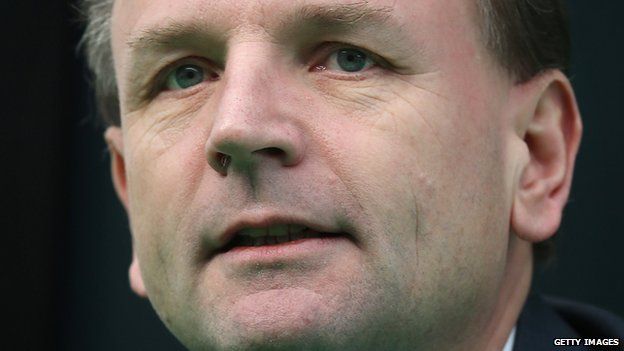NHS England to tackle failing services, says chief
- Published

Whole areas of the NHS in England are being placed in special measures as a way of tackling failing services, the head of the NHS has announced.
NHS England chief executive Simon Stevens said previous attempts to turn around services had been found wanting.
He said the new approach would involve the whole system, including community services and social care, as well as hospitals.
Essex, North Cumbria and most of Devon are the first areas to be tackled.
All have reported significant financial problems and some of the hospitals in the areas are already in the old system of special measures.
Essex, North Cumbria and North, East and West Devon will now be moved formally into the "new success regime".
In a speech to health managers in Liverpool, Mr Stevens said other approaches, including getting rid of chief executives and focusing on failing hospitals, had been "tested to destruction".
Officials from NHS England, Monitor and the NHS Trust Development Authority will be parachuted in to provide enforced support to the areas.
But Mr Stevens said it stopped short of a takeover, with local managers remaining in place.
Holistic approach
"Instead of just looking at how the hospital is doing in isolation, we have to look at everything that is available. The idea here is that we are going to collectively, both locally and nationally, bring the full range of flexibilities and say: 'What is our holistic diagnosis as to what needs to change?'
"It recognises that we get the fact that the existing models of trying to sort some of these knotty problems out need to evolve."
The announcement about the success regime received a mixed response.
Rob Webster, chief executive of the NHS Confederation, which represents trusts, said it was a "positive step" if it brought the expertise and input of the national bodies to work with local leaders on the potential solutions.
But British Medical Association leader Dr Mark Porter said: "The need for this sort of dramatic intervention is likely to increase if the government continues to pursue its drive for yet more efficiencies instead of properly addressing inadequate NHS funding in the face of rising demand."
War on sugar
In a wide-ranging speech to the NHS Confederation conference, Mr Stevens also spoke about the need to do more to tackle obesity.
He pointed to official statistics that show one in five children leaves primary school obese.
In particular, he said, he wanted to see action on sugar. "I make no apology for being lippy on this topic. Rattle the cage and advocate something different. We need to get a big national conversation going about the role of schools, hospitals, local authorities and central government."
But he refused to go as far as backing the introduction of a sugar tax, which has been called for by campaigners.
- Published2 June 2015
- Published10 March 2015
- Published25 February 2015
- Published25 February 2015
- Published23 October 2014
- Published4 September 2014